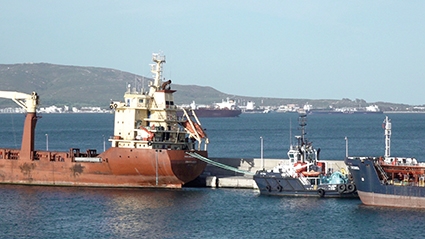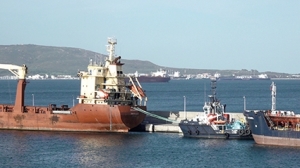Georgia to Host EU Discussions on Black & Caspian Sea Environments
Next Wednesday, September 12, Batumi will host the Second Steering Committee of the EU-supported “Maritime safety, security, and marine environmental protection in the Black and Caspian Sea Regions” (BCSEA) project.
The event will be attended by transport and maritime authorities from Azerbaijan, Georgia, Iran, the Republic of Moldova, Turkey, Turkmenistan and Ukraine, and representatives from the European Commission’s Directorates-General for Mobility and Transport (DG MOVE) and for Maritime Affairs and Fisheries (DG MARE).
At the meeting, attendees will discuss what the BCSEA project has achieved so far during the first year and a half of its implementation. The project was launched in 2017 and is scheduled to run until 2021.
Representatives of participating countries will outline new areas where they hope to receive more technical assistance and support, focusing on their most urgent needs. Particular attention will be dedicated to encouraging the use of technical assistance aimed at increasing national capacity, including support for drafting national legislation and procedures.
The event will present the tools and services offered by the European Maritime Safety Agency (EMSA) with the goal of encouraging BCSEA participating countries to take advantage of them. EMSA offers several support tools, including CleanSeaNet, the Maritime Knowledge Center, RuleCheck, in concert with technical support to build the capacity of countries as flag, port and coastal states, including ensuring safe, secure and environmentally quality shipping. At the Steering Committee’s meeting, the partners plan to adopt a revised action plan of technical activities to be implemented.
It has a €4 million budget, provided by the European Union. According to its website, BCSEA “aims to improve maritime safety and security, and to prevent marine pollution in the region. It does so by supporting the efforts of coastal states in implementing relevant international legislation, approximating their regulatory frameworks with EU legislation and improving the performance of their maritime activities.” They also focus on improving maritime safety and the living and working conditions on board ships, improving security for ships and at ports, reducing water pollution, and helping sailors to access more maritime training and qualifications.
BCSEA includes workshops, seminars and studies, operational support, high-level seminars with parliamentary committees focusing on the relevant legal framework, and providing targeted bilateral assistance.
The issues of maritime safety, security, and environmental protection in the Black and Caspian Sea regions are “common concerns of the EU member states and non-EU countries bordering the Black and Caspian Sea,” reads the EMSA website. In 2016, Smithsonian Magazine published an article titled “The Black Sea Is Dying, and War Might Push it Over the Edge,” detailing some of the horrible pollution in the Black Sea, and the challenge of international, multistate cooperation. Just this week, the non-governmental organization PETA (People for the Ethical Treatment of Animals) sent a letter to the leaders of Bulgaria and Georgia, expressing outrage at the mistreatment of live pigs on board a cargo ship going from Varna to Bulgaria.
By Samantha Guthrie
Image source: EMSA












